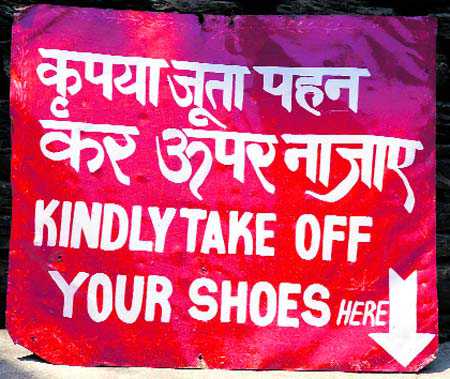Three book events kept me busy this last fortnight: each different and interesting in its own way. The first was a trip to Raipur to speak to a small group of book lovers (mostly Hindi readers) who I went to address and converse with about my memoir of my mother, Shivani. I had translated it from English to Hindi mainly because her core readers belong to that language and because I have tried in my own way to become confident and fluent in speaking Hindi to a public audience. This was my third such attempt (the earlier ones were in Patna and Jaipur), and arranged by a group that encourages such encounters between readers and writers.
Let me now introduce you to two remarkable young writers I had the pleasure of listening to recently. The first, Vinay Sitapati, is just 32 years old and his book (Half Lion: How PV Narasimha Rao transformed India) is a political biography of a man who has never been given the credit he deserved by his own party. At the launch of the book at the India International Centre, there was a galaxy of the country’s most prominent thinkers and movers and shakers. The panel discussion had K Natwar Singh (ex-Foreign Minister and an old Congress party hand, now estranged and a bitter critic of the present Congress Party); C Raja Mohan (eminent commentator on strategic affairs and now with the Carnegie Foundation); Shekhar Gupta (ex-editor Indian Express and a brilliant speaker and commentator on political affairs) and my favourite columnist and thinker, Pratap Bhanu Mehta. The panel was moderated by Sitapati himself and since the audience had several ex-Cabinet Secretaries and Mani Shankar Aiyar kind of fearless commentators, the evening was utterly riveting as political secrets and personal exchanges between loyalists and critics were exchanged. The same panel on a TV debate would have degenerated into a cacophony of voices out-shouting each other but here, in the civil surroundings of the IIC, it was the kind of stimulating political discussion that one yearns to hear. Not surprisingly, few Congress Party walas were around.
The other book event that became a full ‘paisa vasul’ for those who braved the crowds and humidity was Siddhartha Mukherjee’s new book ‘Gene: An intimate history’. Readers may remember his first book on cancer, subtitled ‘The Emperor of maladies’, which won him the Pulitzer Prize a few years ago and hailed as one of the most important books of the last century. Another brilliant young Indian (still in his forties), he is working on the frontiers of genetic research at the MIT. The event was so crowded that the organizers had to rig up a big screen in another room to be able to contain the spillover of people who had come to hear him in conversation with Barkha Dutt. To create a narrative out of something as scientifically complex as genetics and to link it to our own personal lives is an achievement one can only salute. Above all, to write the kind of prose that gives life to a topic that is best discussed in a laboratory is nothing short of genius. Running like a thread that criss-crosses the main text, is the personal story of his own family and its genetic predisposition towards mental illness.
A few years ago, I read an essay by him in an issue of ‘Granta’ on the topic of Euthanesia (I am not completely sure of the topic now but remember his essay clearly). It brought tears to my eyes as he documented the slow and painful death of a relative he goes to visit in an ICU, unable to provide him the release the patient begs for. Nothing could have advocated more eloquently the cause of mercy killing than that live encounter. Like that other talented doctor-writer Atul Gawande (of whom I have also written), Mukherjee extracts the moral and ethical dimensions of medical research to pose questions on whether the path-breaking discoveries being made in our laboratories need to be questioned deeply before we sanction their use in therapy and surgery. Equally fascinating is his gentle guided tour through the history of the science of genetics.
Do try and read Mukherjee’s fascinating book: it could change your life.
Unlock Exclusive Insights with The Tribune Premium
Take your experience further with Premium access.
Thought-provoking Opinions, Expert Analysis, In-depth Insights and other Member Only Benefits
Already a Member? Sign In Now











